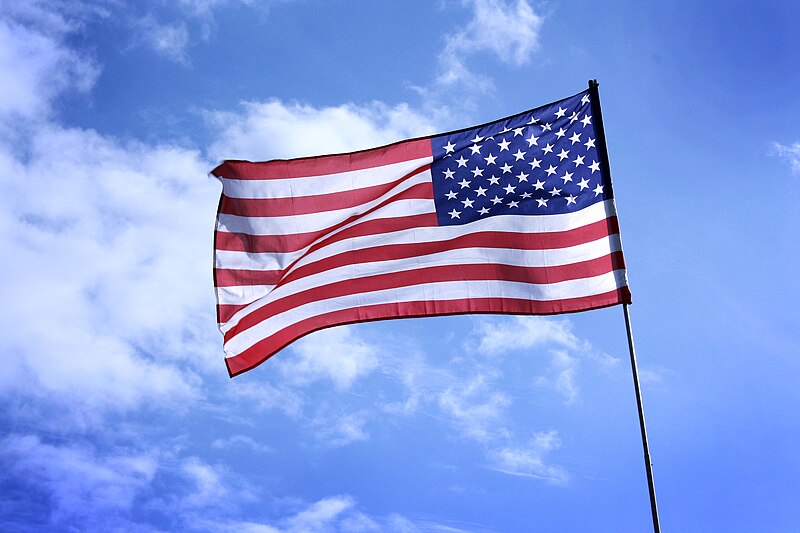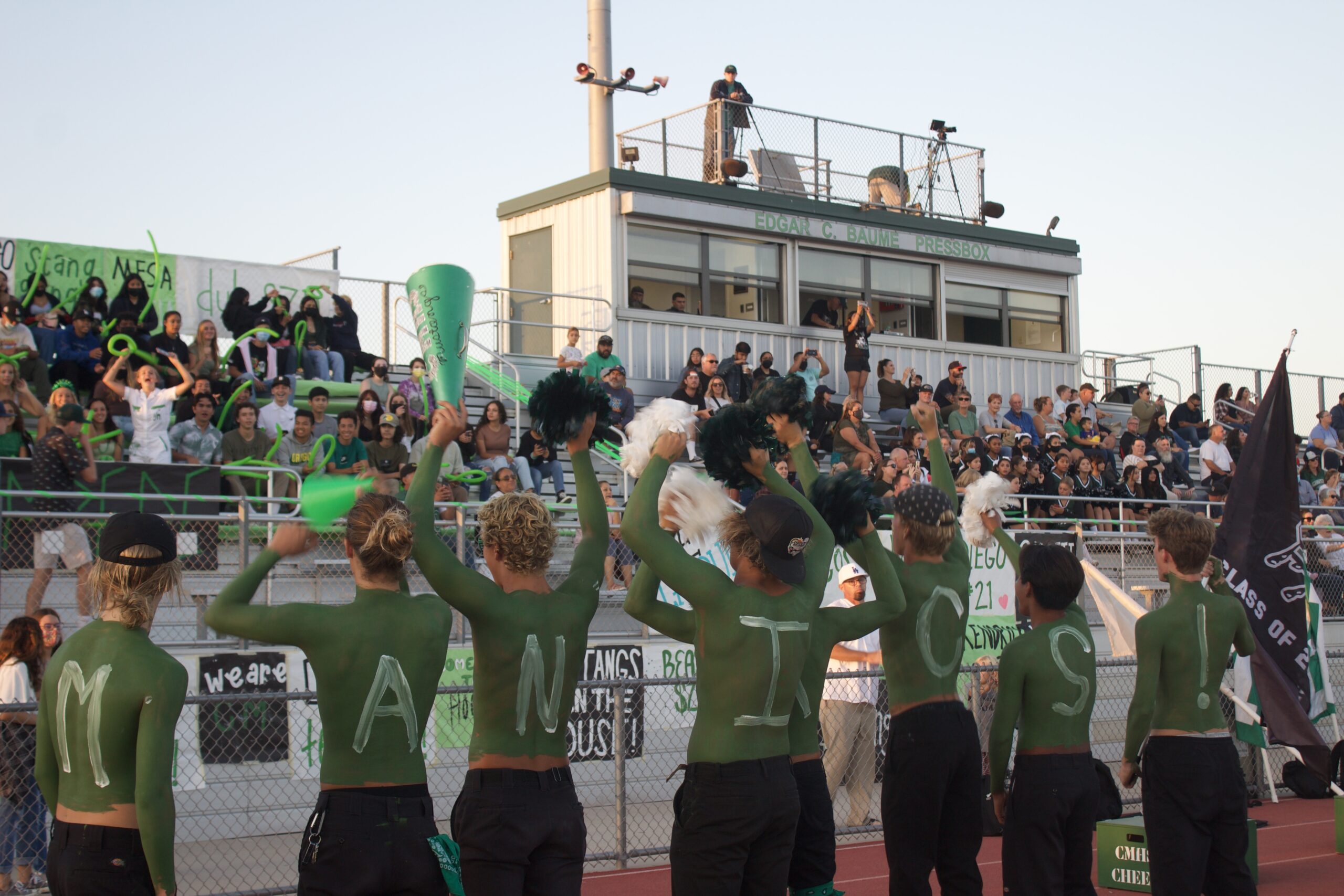Each morning, students and teachers throughout the country routinely pledge their allegiance to the United States of America, hats off with hands over hearts, as a daily reminder of the values that our country was built upon— unity, liberty, and justice. But why do we do this in schools? What are the different views on it? Should you stand?
History of The Pledge of Allegiance
The Pledge of Allegiance was written by Francis Bellamy in August 1892 as a way for public schools to honor the 400th anniversary of the arrival of Christopher Columbus in the New World. It was eventually adopted by schools as a daily affirmation to promote patriotism and unity among students.
The original version differs from the Pledge of Allegiance we say today. The original said:
“I pledge allegiance to my Flag and the Republic for which it stands: one Nation indivisible, with Liberty and Justice for all.”
In 1923 “My flag” was altered to “the flag of the United States” to clarify that foreign-born people were promising loyalty to the U.S. and not the country in which they were born. “Of America” was added following “United States” a year after.
Then, “under God” was added in 1954 to differentiate our pledge from that of “godless” communist countries. This occurred during the second Red Scare, when “U.S. politicians were keen to assert the moral superiority of U.S. capitalism over Soviet communism”
While today, we stand with our right hand over our hearts when we recite the pledge, originally there was something called the Bellamy salute where each person “[extends] his or her right arm straight forward, angling slightly upward, fingers pointing directly ahead.”
This however was changed during the time of WWll because it resembled the Nazi “Heil Hitler” salute, which caused growing discomfort among Americans.
Today, we stand with our right hands over our hearts and say:
“I pledge allegiance to the Flag of the United States of America, and to the Republic for which it stands, one Nation under God, indivisible, with liberty and justice for all.”
Opinions on the Pledge
While some believe that reciting the Pledge of Allegiance is a necessary act of respect for our country, others would rather sit and stay silent for a variety of reasons, one being that it conflicts with certain religious beliefs.
For instance, some people of the Jehovah’s Witness religion abstain from the Pledge of Allegiance because it requires one to “promise devotion to a country above all else” and glorifies a particular ethnic group/nationality, when they believe that “All humans are equal before God.” Along with this, the Pledge of Allegiance can be seen as “an act of worship, or idolatry, which the Bible prohibits.”
Quakers also don’t believe in participation in the Pledge of Allegiance because they don’t take oaths or salute symbols.
Atheists, polytheists, and people of religions that don’t involve a God could additionally take issue with the line of the pledge that says “one nation under God.”
Aside from religion, there are other reasons one might not say the Pledge of Allegiance.
For example, according to a CNN article, a student in the sixth grade “would not stand for the pledge because he believed the American flag symbolized discrimination against blacks.”
In recent years, as there has been a resurgence in social justice movements, there has been an uptick in students who prefer to not participate in the Pledge of Allegiance.
“Doing the pledge feels weird to me, like I’m saying something that’s not completely honest,” says one Costa Mesa High School student. “I prefer to sit down during the pledge, not out of disrespect or ‘hating the U.S.,’ but because saying it doesn’t feel right.”
Another student says that the Pledge of Allegiance “holds little importance to me, I don’t really care for it. I find people who worship the Pledge and scold others for not repeating it, annoying.”
With a more extreme outlook, one student believes that the Pledge of Allegiance is “literally so irrelevant.”
At first glance, one might see the lack of engagement in the Pledge as an absence of patriotism, which according to USA Today is “at a record low, after declining for the past 10 years.”
However, maybe those who don’t partake in the Pledge of Allegiance don’t have a lack of patriotism, they are just expressing it differently— by using their freedom of choice to hold America accountable for its shortcomings and make positive changes in the country in which they care about.
On the flip side, one could argue that the way for the U.S. to grow and make positive changes is through unity as a country, which can be fostered through actions such as reciting the Pledge.
As Abraham Lincoln once warned, “A house divided against itself cannot stand.”
Using Lincoln’s logic in the context of today, the Pledge of Allegiance could be seen as one of many factors that allow Americans to find a common ground with each other and prevent further division.
As highlighted in an article from the Daily Progress, “a pledge is not a description of the way things are; it is a vow to do better.” In that case, even if the country is not perfect, we can recite the Pledge to reinforce the values that we strive for.
“Being a citizen in America, it is your duty to be loyal to your country, defend this beautiful land and take pride in the virtues our country stands for” says Caitlyn Urban, a writer for the Daily American. “We should be humbled by the opportunities our country has allowed us to achieve and say the Pledge of Allegiance with pride.”
One of Costa Mesa High School’s United States History teachers is also proud to recite the Pledge.
“As a person who teaches US History, I am proud to stand and recite the Pledge of Allegiance daily,” they said. “But I understand that reciting the Pledge of Allegiance daily can be redundant for some people. This is where the Pledge can lose its significance; especially for young people. Having to recite the Pledge every day from kindergarten to 12th grade can be monotonous for children and young adults who aren't fully aware of how blessed we truly are living where we are.”
Is saying the Pledge of Allegiance every single day at school dulling down its meaning? It seems it’s become more of a habit than a conscious decision for most students— myself included.
“The pledge, for most of the (millions of?) young people who say it or sit through it every morning, is empty of any substantive significance,” says Nathan J. Robinson from Current Affairs magazine. “Kids are too young to actually make a reasoned decision as to how they feel about the words.”
Maybe schools (especially elementary schools) aren’t the right place for the Pledge of Allegiance to be held. How is a child supposed to know their stance on the Pledge of Allegiance? They just do whatever the adults tell them to.
Do schools need to educate their students better on the meaning of the Pledge of Allegiance? Should they refrain from holding the Pledge in school altogether? Or just do it for special occasions to emphasize its significance?
To Sum it up…
With the many drastically different viewpoints on the Pledge of Allegiance, it can be difficult to decide whether to join in or not. Whichever you decide, it’s important that you know the reasons as to why you do what you do. You have the right to choose to participate or not, and it is your duty to use this freedom in a way that reflects what you believe. Don’t just sit because you feel lazy, and don’t stand just because you’ve been doing it your whole life. Take the time to reflect on your values and make an educated decision based on your personal beliefs and what you think is the best way to support the prosperity of your country.



